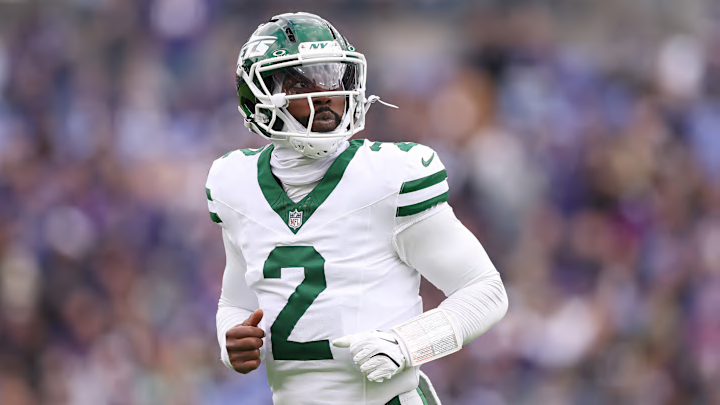The Jets fell to the Baltimore Ravens 23–10 in Week 12, and at first glance, it might look like the offense didn’t gain much from switching to Tyrod Taylor. Ten points rarely inspire confidence.
But for a team that has spent two months unable to evaluate its own roster, Sunday actually served as validation for Aaron Glenn’s decision to bench Justin Fields. No, Taylor wasn't perfect — far from it. That's not the point.
Taylor finished 16-of-25 for 217 yards, one touchdown, and no turnovers outside of the meaningless Hail Mary on the final snap. He very nearly threw an interception on the opening drive, sure, but from that point on, he provided exactly what the Jets needed.
He provided the Jets with baseline competence at the quarterback position. Not brilliance. Not a spark. He gave them stability, which is one thing they haven't had most of the season.
And that stability finally allowed the Jets to learn something about their offense.
Tyrod Taylor allowed the Jets to evaluate their own offense in Week 12
John Metchie continued his late-season breakout, catching five passes for 61 yards and a touchdown. Adonai Mitchell flashed real upside again, hauling in two grabs for 42 yards and nearly coming down with a deep shot that Taylor gave him a chance to grab.
Rookie tight end Mason Taylor added three catches of his own. These are the kinds of evaluations the Jets simply could not consistently make with Fields under center.
The lows with Fields weren’t just drive-killers. They also proved to be development-killers. You can’t assess young weapons when the offense, specifically the passing game, can’t function.
Taylor was able to regularly hit on the lay-ups on Sunday. He pushed the ball when the coverage allowed it. He stayed composed against pressure and extended plays when necessary. Most importantly, he didn’t drag the rest of the unit down.
The Jets even had a chance to keep the game competitive, but a Breece Hall fumble at the 2-yard line erased what should have been a scoring drive. The Jets weren't good, but they were watchable.
The Jets lost because they’re a bad team facing a much better one. But the quarterback was far from the biggest problem. And for the first time in months, the Jets were able to actually assess their play caller, their young receivers, and the direction of their offense.
Tyrod Taylor isn't a good NFL quarterback. He had his fair share of mistakes on Sunday as well. But he gives the Jets a higher floor and allows them to properly evaluate the rest of their roster and offensive staff.
That alone makes the switch to Tyrod Taylor the right move despite the final score.
